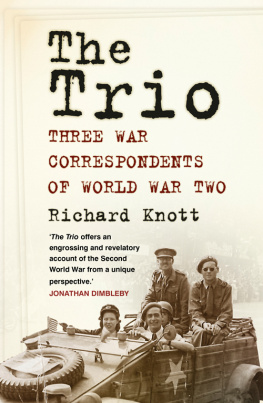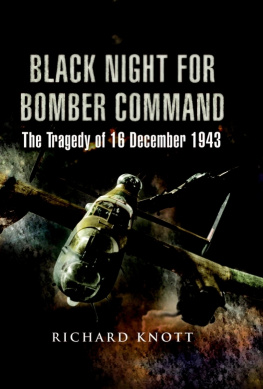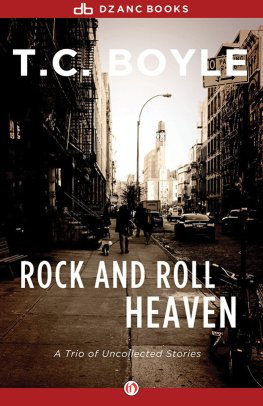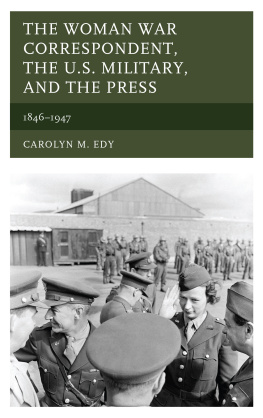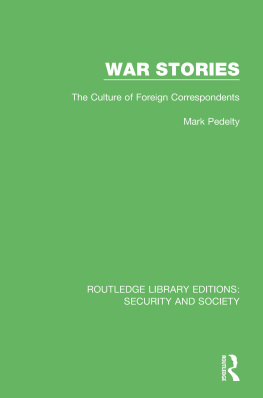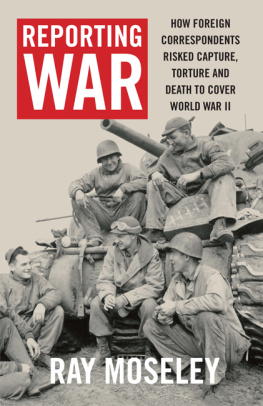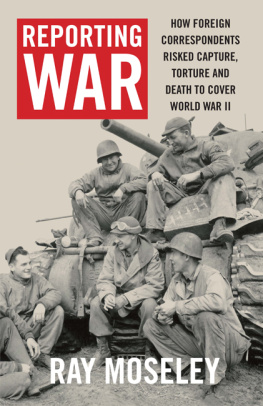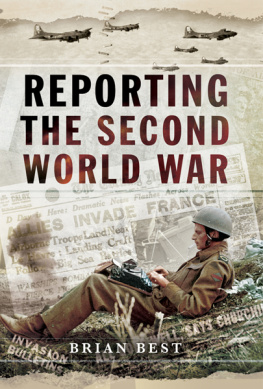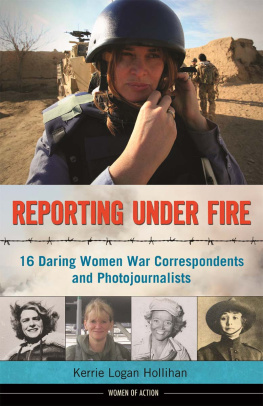

For Suzie
There were three of them, and they stood for three great London dailies.
Sir Arthur Conan Doyle in The Three Correspondents
One is rarely seen without the other we are known as the three inseparables.
Alexandre Dumas in The Three Musketeers
The war correspondent has his stake his life in his own hands. And he can put it back in his pocket at the very last minute.
Robert Capa in Slightly Out of Focus and quoted by
Susana Fortes in Waiting for Robert Capa
A curious side effect of the Second World War was an upsurge in publishing, despite a shortage of paper. Newsmen and newswomen often could not wait to turn ephemeral journalism into memoir, and many of their volumes were a great help to me in researching the story of The Trio . It goes without saying that Buckleys, Cliffords and Mooreheads accounts of key campaigns were an inspiration to me, but so were dozens more. Perhaps the most compelling of them were the books by Richard Dimbleby, Eve Curie, Philip Jordan and Richard Busvine, but as my footnotes testify, I could not have written this book without those who went before me, and who endured the discomforts and pain so far removed from my desk in a peaceful Somerset.
The actual starting point for this book was a letter from Alan to Lucy Moorehead describing an idea for his next book so fragile and reeking that I scarcely dare to write about it. Its a book about our summer school in Taormina and our winter school in Naples. I found the quotation in Tom Pococks readable biography of Moorehead and it prompted me to explore the Trios long and winding road into and out of Taormina. Initially, I turned to the official sources of information, notably the Imperial War Museum, where I read with mounting admiration and fascination the extensive papers of Alexander Clifford, and the National Library of Australia where the Moorehead papers are kept. I am grateful to the archivists at both institutions. Other sources of material have included The National Archives, the British Library, the Liddell Hart Centre for Military Archives at Kings College, University of London, the Bodleian Library, and the Christian Science Monitor Library. I am grateful to the trustees of the Liddell Hart Centre for Military Archives for permission to use quotations from their archive.
One of the pleasures of researching this book has been the willing help received from individuals: both Caroline and John Moorehead have been extremely supportive, both in terms of sharing their memories both of their father and the other members of the Trio: their respective godfathers Alexander Clifford (John) and Christopher Buckley (Caroline). Talking to both Mooreheads was a real pleasure. I am grateful too to Mrs Elizabeth Quyke who holds the copyright for Cliffords papers at the Imperial War Museum and who readily gave permission for me to mine and use the extensive documents in Cliffords wonderful archive.
The search for Christopher Buckleys papers preoccupied me throughout the project. I did not want him to be the third mysterious, and therefore less important, member of the threesome. But the obvious ports of call produced nothing. Yet I knew from a reference in Road to Rome that he had kept some kind of journal In my diary, he wrote, I find the following significant entry for September 6: The war is over for the Italian people Did the diary still exist and could it be tracked down? I sent tentative enquiries to Oriel College, Oxford University, where Buckley took his degree, for example, as well as the Tunbridge Wells Civic Society but without luck. I talked to a friend, Judith Bryant, who specialises in locating the real parents of adopted children. She gave me some wise advice about how to proceed: I progressed from Buckleys marriage certificate (Christopher Thomas Rede Buckley, bachelor, aged 42, journalist, resident at the National Liberal Club), to his will (via the London Probate Service), to his wife Cecilias death certificate (in Suffolk, 1996), and then to her husbands later remarriage and death (John Russell-Smith, Norfolk, 2006). His widow, Gael Russell-Smith, responded to an enquiry from me, kindly suggesting I contact Shirley Tudor-Pole who was able to describe her memories of Buckley and who put me in touch with Genista Toland, the daughter of Cecilia Buckleys brother, Hugh. The conversations I had with both were helpful and confirmed for me Buckleys charm and erudition. They also both took the view, however, that Cecilias business-like, no-nonsense view of the world was such that Buckleys papers would not have been preserved. She would have thrown stuff out, I was told with great certainty. Shirley helped clear Cecilias house when she died and she confirmed that there were no papers of any significance left.
There are other names I should mention: I wrote to both Jonathan Dimbleby (about his father) and Sir Max Hastings (about The Daily Telegraph and Christopher Buckley) and received, in both cases, kind and interested replies. My commissioning editor at The History Press, Jo de Vries, has again been a pleasure to work with and supportive throughout. In addition, I should like to thank Lyndall Passerini, Betsy Connor Bowen, Paul Patterson and Anthony Grey. I am grateful to Ana and Kino Bardaji who explored and photographed the Bar Basque in St-Jean-de-Luz on my behalf from their home across the border in Spain. I am also grateful to William Lancaster for permitting me to quote from his fathers letters to the Mooreheads. Every effort has been made to trace the copyright holders of the material in this book.
Finally I want to thank my wife, Vanessa, who has put up with my obsessive pursuit of these three heroes of mine, provided shrewd and timely advice about the books structure, and brought me reviving cups of coffee when I was at my desk, just as Cecilia did for Christopher Buckley as he worked away at his writing nearly seventy years ago in that upstairs room at 46 Mount Sion, Tunbridge Wells.
NOTE
Buckley, p.164.
Contents
PART 1
I n the middle of August 1943, a small group of war correspondents arrived in the hilltop town of Taormina on the island of Sicily. There were three of them Christopher Buckley, Alexander Clifford and Alan Moorehead and they worked for three London newspapers: The Daily Telegraph , the Daily Express and the Daily Mail. They had been drawn together by the shared demands of a dangerous job, the familiarity of living cheek-by-jowl in the open air of the North African desert, and the recognition that each of them would be the lesser without the other two. They had not known each other long a few eventful years but, in a world of guns, bombs and frantic movement, their friendship had been accelerated to the point where it bordered on love. They were known as The Trio.
On that hot summers day they approached Taormina by way of a tree-lined road which passed through shaded verges where wild geraniums grew. It was a cautious progress prompted by the fact that the Germans had planted scores of mines in the road. A young peasant woman appeared, clutching a jug of wine and glasses, and offered them a drink. So began the pleasures of Taormina. The town was captured in the old style, the Daily Mail s Alexander Clifford wrote home to his mother, declaring it to be the most lovely place in the world.

Next page
